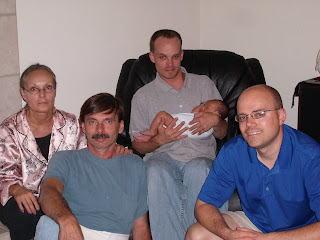
"Justice cannot be brought about if two parties cannot communicate effectively..."
From the classroom to the courtroom, from the doctor's office to the home, communication is vital. And communication can be difficult enough when two people speak the same language.
Whether in the courtroom or in a hospital setting, interpreters/translators are a great tool when two people do not speak the same language.
Here is my "Question and Answer" interview with LaDonna S. Brown, a Spanish interpreter/translator who resides in the Seattle area. I wanted to hear firsthand from an interpreter on what it is like to help individuals/professionals in the legal and health care fields.
Q (Brandser): How are you currently using your skills as a Spanish interpreter/translator?
A (Brown): "I work at Nintendo as a Spanish Consumer Tech Specialist. Each day I must interpret the Nintendo material from English to Spanish and vice versa in order to help the consumer troubleshoot his/her game, console, etc."
Q (Brandser): What experience do you have in assisting health care professionals?
A (Brown): "Interpreting at Detroit Children's Hospital was a great, hands-on, up close experience being in different environments each day to assist nurses and doctors perform their duties better through the communication gap I was able to fill. Each day I was in a different wing of the hospital: this kept things fresh and exciting as I grew and learned more about the world of communication and interpretation in the hospital environment. Through this I was able to learn how to comfort my patients when their child was having surgery or facing other difficulties."
Q (Brandser): In what ways have you assisted our justice system?
A (Brown): "As a Spanish interpreter I was assigned to court cases in Flint, Michigan. For those who are familiar with Flint, MI, it is not a place with the best reputation. I was an interpreter for small claims court as well as misdemeanors. Within the justice system, the judge was unable to communicate in the target language, which in this case was Spanish. Therefore, with my interpretation skills, I was able to assist in justice being brought about through communication that would not have been possible without an interpreter being present. The judge was very happy with my interpretation skills, and in fact commented on it on one occasion in the middle of court, saying, 'This is the best interpreter that has ever been in my court room!' I smiled and went on interpreting. Justice cannot be brought about if two parties cannot communicate effectively...that is where I come in."
Q (Brandser): Briefly describe your experience studying in Spain.
A (Brown): "My experience studying in Spain was paramount. I studied with Spaniards at one of the oldest and prestigious universities in Spain (Universidad de Salamanca). Being able to study with Spaniards put me in a position where I could really experience how it is to be a student in Europe. To see how other educational institutions function was eye opening. It helped me to appreciate the different ways to get the same point across. This has helped me work more effectively in different environments and with people from all walks of life, and growing to appreciate diversity. The experience studying abroad also helped me to grow as a person and as a woman."
Q (Brandser): How can health care professionals benefit from the services you offer?
A (Brown): "Health care professionals will benefit from the services because I am extremely professional and good at what I do. Sincerely, I love interpretation, it is a gift from God. I do simultaneous and consecutive interpretation, which gives those who I interpret for an option and more control of how they want the flow of the interpretation to go. Overall, I enjoy my work and the nature of what I am able to do through interpreting-bridging the gap of communication through interpretation and translation so that certain services can be yielded. Through my experience in the hospital, I am familiar with medical terminology from different branches of the hospital (including but not limited to): neurology, genetics and EKG/cardiology are just some of the departments that I was an interpreter for."
Q (Brandser): How can legal professionals (attorneys, paralegals, legal nurse consultants) benefit from your assistance?
A (Brown): "Legal professionals can benefit from my experience because I have previous experience interpreting in the legal environment. I have interpreted in the court room and jail holding cells. I understand the importance of staying calm, cool and collected, along with following court room procedures and speaking with respect to the judge, as an interpreter. In addition to this, I am familiar with legal terminology and am capable of simultaneous and consecutive interpretation."
If you are an attorney or health care consultant that is in need of an interpreter, here is LaDonna's contact information:
LaDonna S. Brown, M.A. (Spanish Language & Culture), B.A. (Hispanic Studies: Spanish)
Mobile: (248) 556-1553
By Brian Brandser, RN, BSN, CCRN, CLNC
 As I look out my hotel window in Nashville and have country music songs running through my head, I feel very refreshed by the past 36 hours.
As I look out my hotel window in Nashville and have country music songs running through my head, I feel very refreshed by the past 36 hours.




